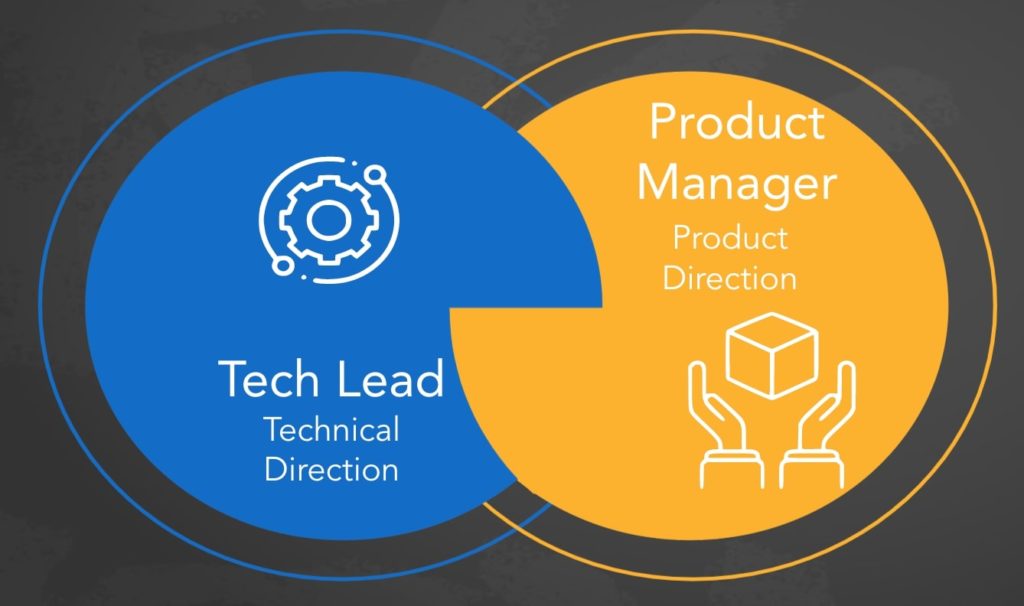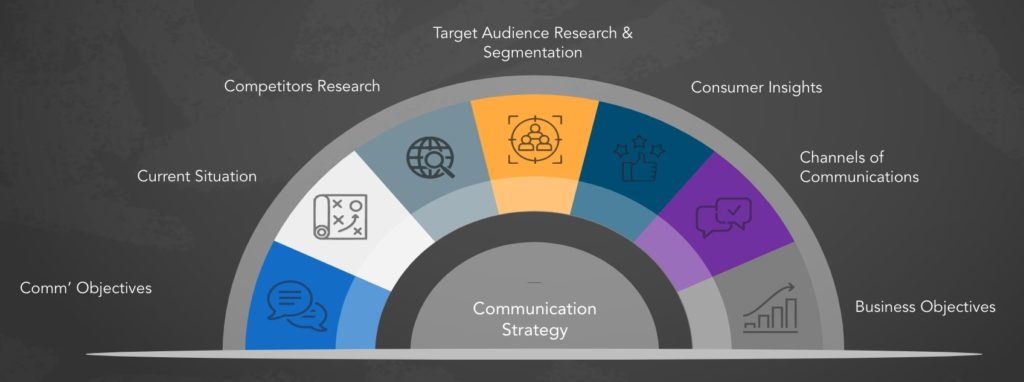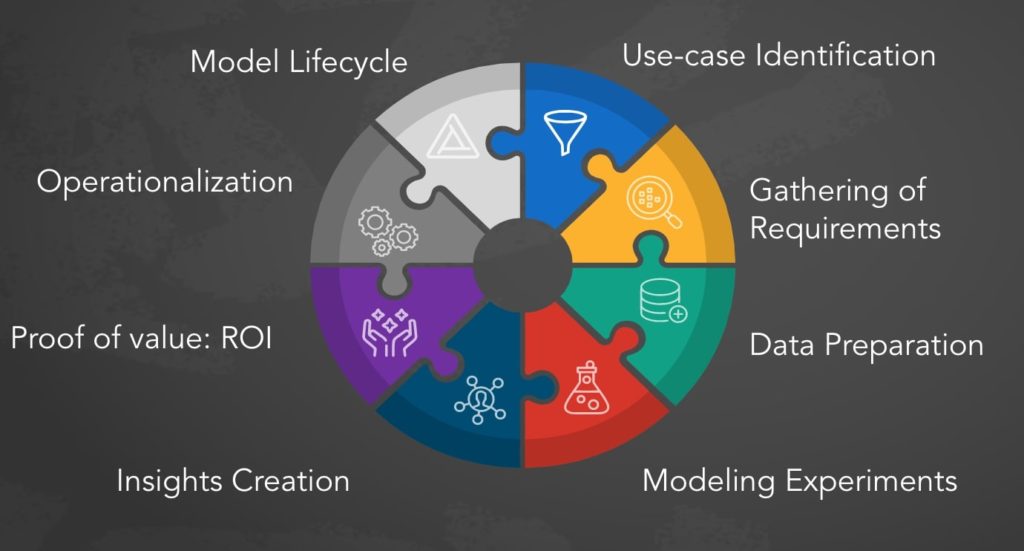The role of principal product manager (PPM) comes with a lot of responsibility. And it’s not a role you fall into by chance.
Sometimes referred to as product lead or lead product manager, the principal product manager has an elevated role in the product management hierarchy. And while they have the same level of authority as a group product manager (GPM), they are part of a different branch in the hierarchy.
The principal product manager is on the Individual Contributor (IC) Track. This means they don’t have any product management responsibilities.
This role focuses on an employee’s skill set and not their ability to manage others. It’s all about managing the product itself, not people.
In this guide, we will dive into some of those skills that you’ll need to have to succeed as a principal product manager.
Top Principal Product Manager Skills
Here are the top skills you need to become a principal product manager:
1. Technical Skills
Technical skills are among the most important skill sets that a PPM will need to have. More so for those in a principal technical product manager position.


Depending on the industry, the term technical skills can have a variety of meanings. If you’re pursuing a specific industry, make sure you understand their definition of technical, not the more generic description.
As far as core expectations go, you should have a solid background of the following, at the very least.
- Coding & Programming Languages. The basics would include C+, CSS, HTML, JavaScript, Perl, PHP, Python, Ruby, and more.
- SQL. Database management and manipulation
- Data Structure and Algorithms. This refers to how data is stored and then later used.
Principal product managers aren’t specific to any one industry. That may mean that you would need to be well-versed in one of the more advanced programming languages.
Look for courses that provide what you need, but keep in mind you’ll need more than industry specifics.
For example, the training provided in our Product HQ Technical Onwer Manager Course will help you acquire a broad range of technical knowledge and skills.
2. Business Skills
It’s the product manager’s job to listen to clients and customers and then focus on providing them with the product they want and need.
While developing a roadmap for the perfect product for the customer, they also need to stay on target when it comes to business decisions that impact the company. This means taking advantage of market trends and opportunities while maintaining mission statements and principles.
This will all be done to make sure the product proves to be profitable.
The principal PM must know and understand the product’s cost structures, including overhead.
Negotiation skills are critical as well. Whether you’re working with internal or external clients, you need to figure out whether the deals you are negotiating are in your best interests. It’s imperative to understand risks at all stages and make the right decision for the business from product vision to potential returns.
If you’re on a career path leading to becoming a principal product manager, be aware that a degree in business is required for this role.
3. Market Research Skills
Solid market research won’t guarantee a successful product launch, but it will drive it in the right direction.
Market research can focus on different things, including, but not limited to conducting market research as:
- Exploratory research
- Competitive analysis
- User insights
- Segmentation
Each of these can help a product manager make informed decisions. Exploratory research takes place in the initial stages of product vision. At this point, you’re answering questions such as:
- Is there a need for the product?
- What problems will the product solve?
- Who will it solve them for?
Depending on the answers to those questions, production may or may not commence.
Competitive analysis means understanding your competition. What are they doing today? What are their plans for tomorrow, and is there a place for you in the market?
User insights will help you identify who your customers are. What problems do they face with current products, and where do their loyalties lie?
Segmentation involves separating your users. This could be by behavior, demographics, geography, or more. It provides you with the ability to test better.
4. Communication Skills
Of all the skills necessary for a principal product manager position, communication is often the most important. Communication weaves through every other skill mentioned here.


Who you communicate with throughout the day plays a role in how you communicate with them. You wouldn’t communicate with your customers the same way you would with one of your cross-functional teams. And when speaking to stakeholders and executives, your interaction will be different yet again.
Without effective communication within the product team, there could be chaos. Missed deadlines, inoperable products, or even unsuccessful launches.
Product managers often use three streams of communication.
- Horizontal
- Vertical
- External
Horizontal
Horizontal communication streams are the most common. Chances are, they will be the type you’re most comfortable with. These are conversations you have with members of your team and with any leading cross-functional teams and other functional teams. You all have the same goal, which is the implementation and execution of your product.
Vertical
Vertical streams of communication are interactions with those farther up in the organizational chain. Not just executives, these conversations may also be with investors or board members. But you also need to communicate with stakeholders who have an entirely different focus.
External
External communication streams are interactions with business partners, users, and customers.
All three groups have different concerns and focus and as the principal product manager, you need to effectively communicate with each.
5. Analytical Skills
Another necessary skill for anyone in product management is proficiency in analytics. Today’s PMs have an array of tools to assist in gathering data, but how is that data used?


Here are four analytical skills that every primary product manager should have in their arsenal.
- Ability to create custom metrics
- Know how to ask investigative questions
- Ability to make data-informed decisions
- Explain or communicate their analysis
Let’s dig a little deeper into each of those.
Custom metrics
Product managers have an abundance of data and the ability to measure it. But it’s necessary to fine-tune or create custom metrics to make decisions about their unique product.
Investigation
Asking investigative questions helps a principal product manager gain better insight into their product. For example, when analyzing data, don’t ask questions that require a single fact-based answer. Instead, ask questions that will provide several possible answers. Answers that could reveal appropriate follow-up questions.
Data-Informed Decisions
Data-informed decisions are decisions based on more than hard data. Instead, a principal product manager will base decisions on a combination of their own experience, context, and maybe even intuition. All of that, plus the data.
Communication skills
Without the ability to communicate their analysis, how could a PPM share their insights? With team members, management, and stakeholders; everyone has a place on the product roadmap.
6. Strategic Skills
To remain competitive, principal product managers need to understand their market and appropriately position their product strategy and business.
This requires an overall, strategic view of what their product is, how to build the product, and how to make it successful. They need to maintain a business perspective while keeping the user’s perspective in view at all times.
Principal product managers follow a roadmap similar to the following.
Planning
Developing a strategic plan and presenting it to the marketing team and key stakeholders. Then, throughout the lifecycle of the product, they continue to communicate how they plan to navigate the roadmap.
Prioritizing
Plans rarely unfold exactly as planned, and this often calls for prioritizing one task over another. The decision-making process can include weighing the feasibility of a feature against the time and effort needed to create it.
Execution
It takes a lot of effort to get a product to market, and principal product managers ensure that each aspect of the roadmap is completed successfully.
Measurement
Tracking key performance indicators and metrics throughout all stages of the roadmap.
Mastering strategic thinking skills doesn’t need to include courses or college degrees. The process of strategic thinking is something you can learn yourself, and then learn how to apply.
If any of the following describes you, there’s a good chance you’re already a creative thinker.
- You love to learn and share new things with others
- You don’t limit yourself to what’s currently tried-and-true
- You’re able to pivot and change your approach based on current circumstances
- You’re a creative thinker who loves to think outside the box
7. Quality Assurance Skills
Many companies will have a dedicated quality assurance analyst or engineer on the business development team. However, the principal product manager oversees every aspect of the product, including quality assurance.
Having a quality mindset means QA is never an afterthought. It should be present through every step of the development cycle. Then it becomes an intuitive part of the process instead of a tedious step at certain checkpoints.
As the principal product manager, no one will have better insights into the product than you. This means you’re in the best position to ensure quality. And the more testing you do, the more in tune you are with your product, its features, and its requirements.
Don’t rely on quality assurance to catch issues after they’re created. Work it into your process so that problems and issues are caught and resolved as they appear.
8. Prioritization Skills
On any given day, a PPM will have multiple tasks to handle, sometimes too many. Everything on the to-do list needs to get done, but sometimes it will require setting priorities.
Prioritization may also include learning how to say no. To stakeholders, customers, and even investors, that means doing whatever it takes to stick to saying ‘no’. Otherwise, goals and deadlines could be sacrificed.
As a PPM, part of your job description is ensuring everyone on the team is working on what’s most important at any given time. This is the only way you’ll see the product through to successful completion.
9. Problem-Solving Skills
Problems will arise on any project, that’s almost a given. So product managers must be able to adapt to situations as they arrive. It doesn’t matter if problems are simple or complex, PPMs need to have appropriate problem-solving strategies. A framework, if you will.
A simple problem-solving strategy could be something like the following.
Define the problem
Without truly understanding the problem, you won’t be able to correct it.
Define the solution
In this phase, you want to map out the solution to the problem you identify.
Then set milestones that lead to your goal.
Execute the solution
Now it’s time to create the solution. This may involve several cross-functional teams. Throughout the product development process, the principal product manager monitors the solution and ensures it remains relevant to the problem initially defined.
Key Takeaways
Anyone desiring to become a principal product manager will need to exhibit strength in several hard and soft technical skills. Remember that this role involves continuous learning and upskilling.
In some cases, college degrees may be required. In other cases, practical common sense and individual research should be able to provide you with the skills and knowledge you need.
- Strategic thinking
- Prioritization
- Problem-solving
However, if you feel you would fare better in a more structured learning environment, there are many courses available. Do check out our courses at PMHQ
FAQs
Here are answers to questions about product management:
What should a principal product manager do?
A principal product manager leads the strategic direction of multiple product lines or a major product area. Their role includes driving innovation, managing high-level stakeholder relationships, and ensuring the success of the product portfolio. They mentor other product managers, define long-term product vision, and align it with business objectives.
What are the key skills of a product manager?
The hard and soft skills of a product manager include:
- Strategic thinking to align product goals with business objectives
- Strong communication to coordinate with stakeholders
- Market analysis to understand customer needs and the competitive landscape
- Technical proficiency and project management for successfully guiding product development
What is the difference between a product manager and a principal product manager?
A principal or senior product manager has a broader scope, overseeing multiple products or entire product areas, and is involved in higher-level strategic planning. A product manager focuses on the development and management of a single product or a specific product line. Principal product managers also mentor and guide other product managers.
What does a principal product owner do?
A principal product owner oversees the product backlog and prioritizes features for a significant product line or multiple products. Their role includes strategic planning, backlog management, and optimizing product delivery processes. They ensure alignment with business goals and customer needs, working closely with development teams and stakeholders.
If you are new to product ownership and are looking to break into a great product owner’s role, we recommend taking our Product Owner Certification Course, where you will learn how to guide PM projects using scrum foundations, how to lead certified scrum product owner teams and land a great product owner job.

